In its newly found partnership to empower tech entrepreneurs, Arrow Electronics and crowdfunding platform Indiegogo are flash funding Arrow-Certified campaigns on Indiegogo. Recently announced was the first winning recipient of $25,000, music producer Brad Holland of Isla Instruments, who created KordBot, a MIDI chord generator, arpeggiator, step sequencer, and studio production assistant.
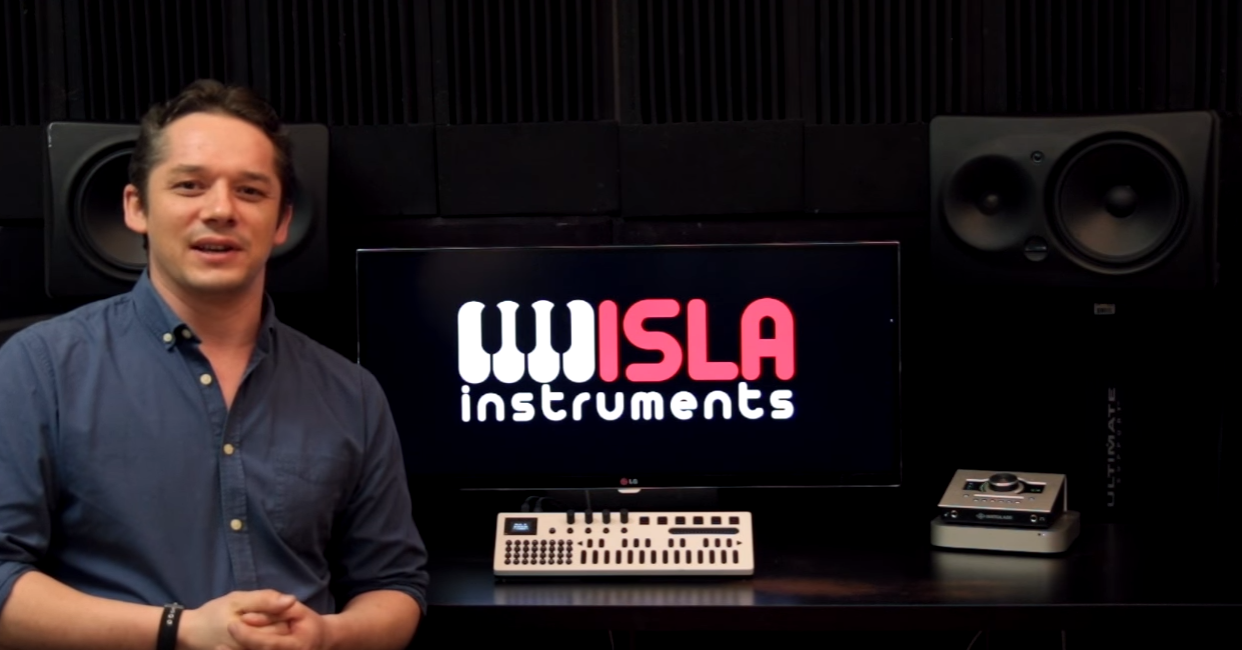
Holland’s passion for all things music and computers began at a young age. When he was 11-years-old, he was fascinated with a book titled “Music & Sound for the Commodore 64.” But it wasn’t until he started to work in music studios — where he found it difficult to create chord progressions and was stuck playing the same key — that he dreamed up the idea for the KordBot. After being bored with different software programs and surprised that such a device didn’t exist, he decided to develop it himself. For Holland, there’s nothing like having a piece of hardware handy that gives him instant gratification.
“Having a tool on the desk in front of me that would assist me with creating chord progressions on the fly and also having illumination to show me how to play them for myself was what I always wanted, but to date nothing has ever been released to market, so I took it upon myself to get to making one,” Holland said.
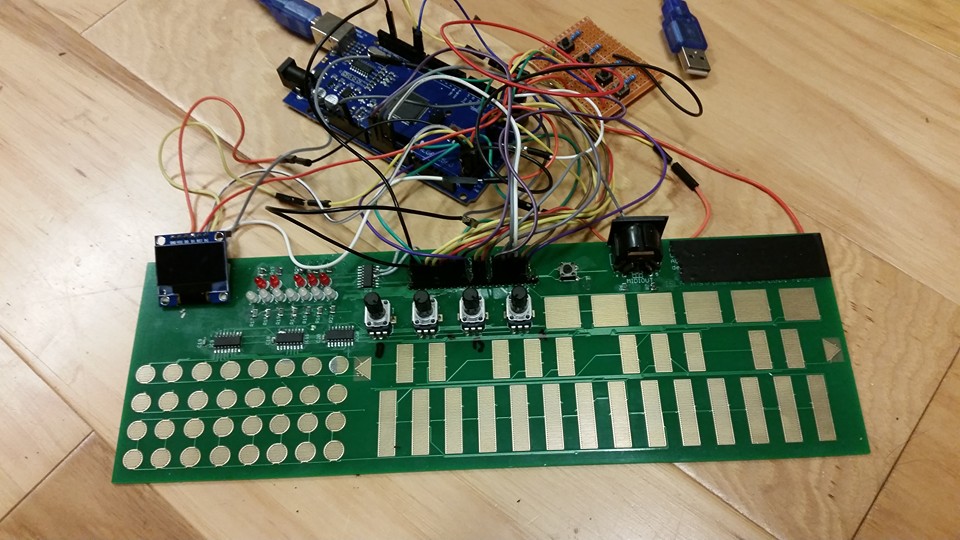
Along with business partner and software developer Bill Behrendt, the duo set out to bring the KordBot to the masses to see if anyone would actually want their product. As it turns out, Behrendt was the author of Holland’s favorite childhood musical book. “Twenty-six years later, this is the guy who wrote that book, that I was engrossed in as a kid and got me into music, and it’s come full circle and now he’s my partner on this,” Holland said. “I’m not very superstitious, but wow.”
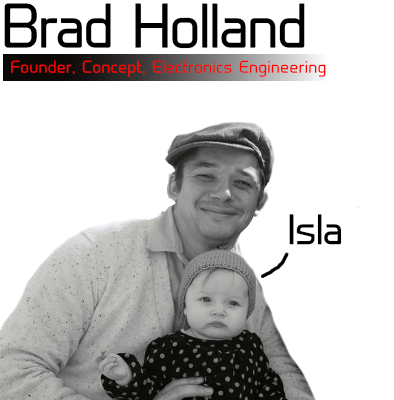

As if it was meant to be, the two continued refining the tool’s design and looked to crowdfunding platforms to advance their project. Originally, they asked for $55,000 on Kickstarter to make a bare minimum number of units. Fortunately for them, their goal was surpassed in less than a day. It was then when Holland realized this kind of volume can bring along lots of stress, and saw that they needed to improve the hardware of the device, add more features, and be able to mass-produce while maintaining the quality of the product.
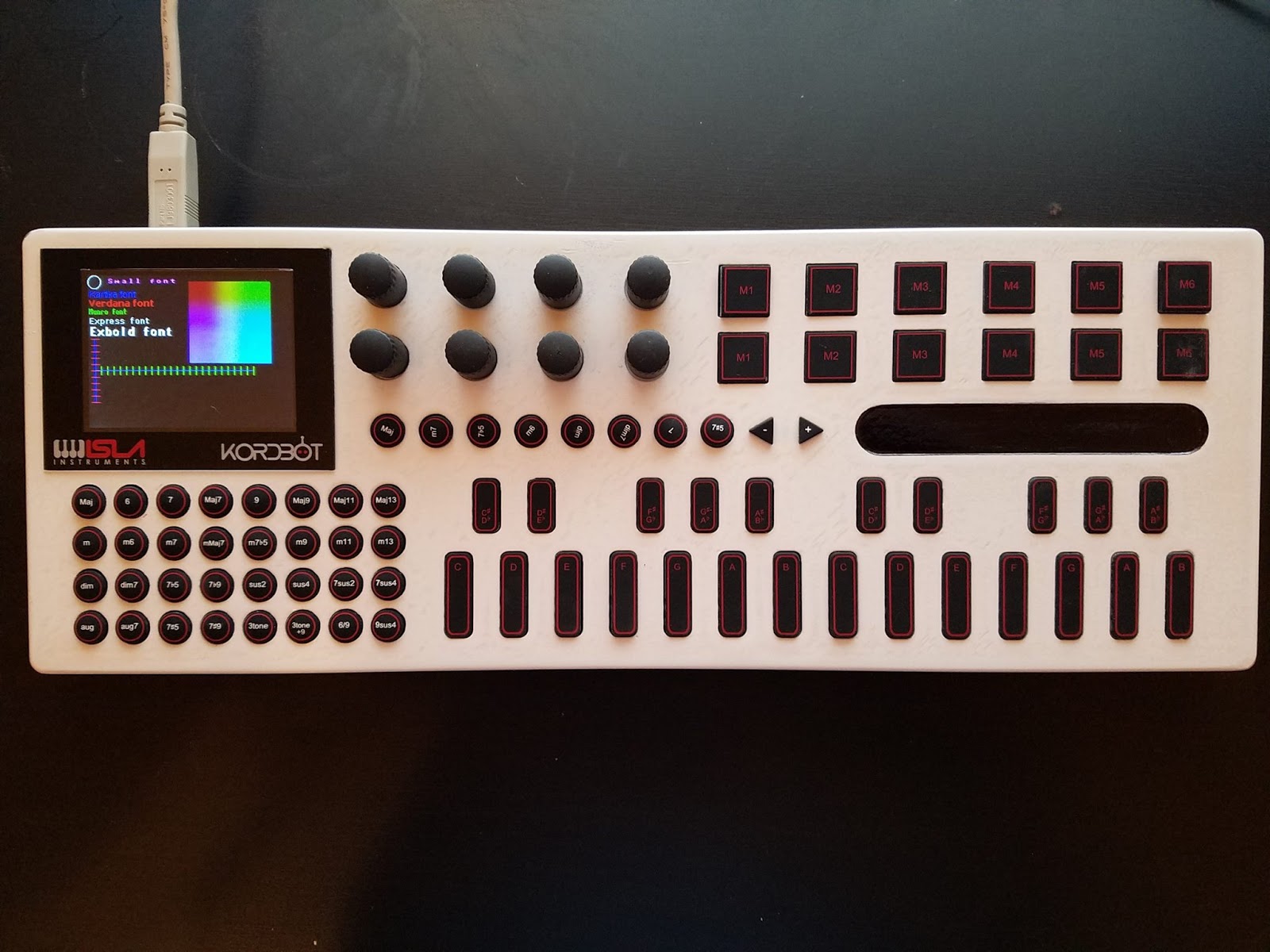
In order to afford all of these improvements, the team opted to switch to Indiegogo’s InDemand, which allows campaigners to raise funds as long as necessary. This relieved the previous worries Holland and Behrendt had. “The expert advice has been invaluable,” Holland said. “And I’ve already received huge amounts of it.”
From there, KordBot, a fully contained computer with its own operating system, was put into production. Its interface is mainly comprised of a touch sensitive silicon keypad married to a special “FSR Overlay,” which is a printed overlay with resistive ink zones printed onto it. Also included is an array of rotary encoders for changing values, a 2.8-inch color TFT LCD module, and a custom designed capacitive sensing board which is used to enable users to do things like strumming guitar chords by swiping their finger across the top of the device. As for its MCU, the music assistant is equipped with the STM32F405ZGT6. The device is also equipped with the AD7147 CapTouch controller, designed for use with capacitance sensors implementing functions such as buttons, scroll bars, and wheels.
With a grid of 32 internal chord types to choose from, including inversions, KordBot gives you instant access to thousands of chords using just two fingers. Better yet, you can also save your own chord shapes into memory. Included are six memory pads, which can store sets of chords for quick access.
Currently, Holland is waiting for the plastic outer shell-molds for his product as he continues to make adjustments on the circuit board. As far as manufacturing the circuit boards for KordBot, he's doing that in his own garage, and doesn’t plan to take it overseas. Being protective of his backers’ funds, he prefers quality control over the boards to guarantee that they work.
“What really swung the idea of buying the manufacturing equipment for me was the possibility of also being able to help other tech crowdfunding guys make prototypes in the future,” Holland said. “Kind of giving back to the community a bit, as this was quite stressful to me and so it would be good to be able to help others in the same boat.”
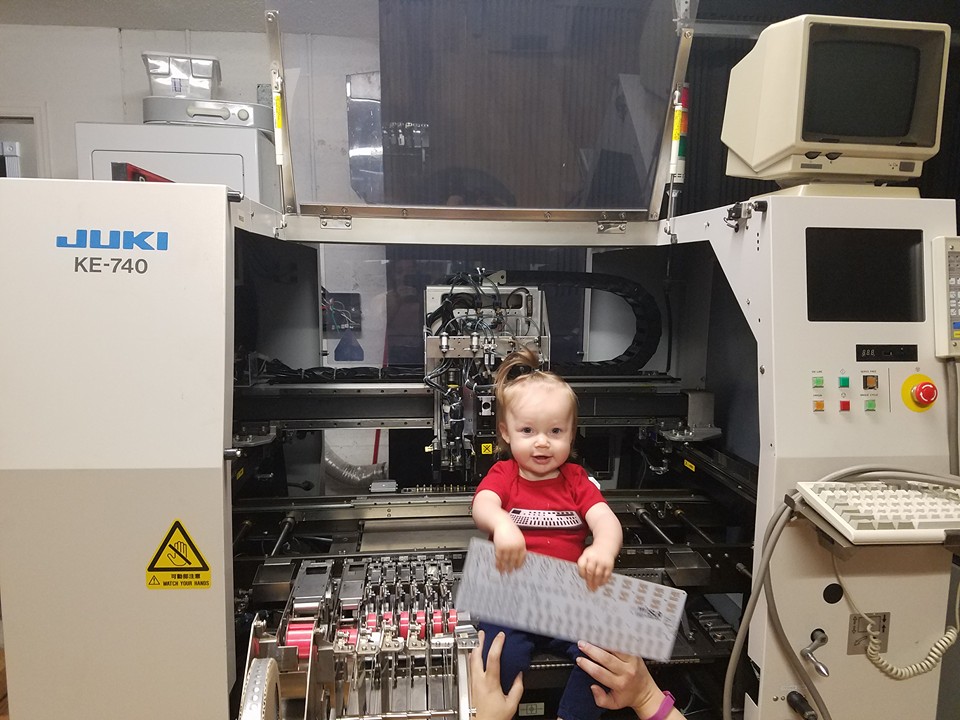
Holland’s daughter Isla on the PCB-making machine.
Arrow is flash funding now, so sign up here for your shot at game-changing funds, engineering resources and tools, discounts, and personal guidance from experts.
Electronic Products is owned by AspenCore, a subsidiary of Arrow Electronics.
Advertisement
Learn more about Electronic Products Magazine





